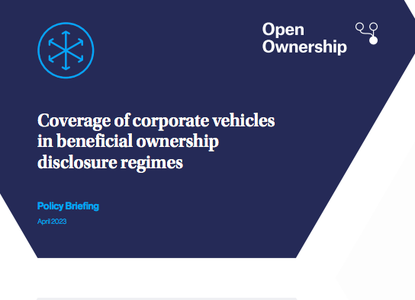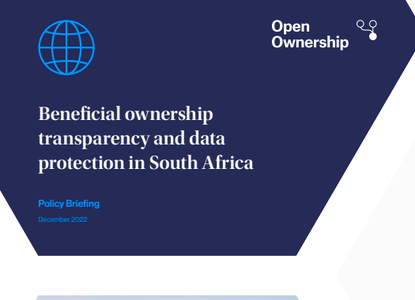Updated January 2023
Disclosure requirements should comprehensively cover all relevant types of entities and arrangements
- Disclosure requirements should apply to all types of corporate vehicles, unless reasonably exempt.
- Any exemptions from full declaration requirements should be clearly defined and justified against policy aims, and they should be reassessed on an ongoing basis.
- Exemptions from disclosing beneficial ownership may be granted when an entity or arrangement is already disclosing sufficient information and this information is accessible through alternative mechanisms (e.g. for publicly listed companies listed on exchanges with sufficient disclosure requirements).
- Entities and arrangements exempt from disclosing their beneficial ownership should still be required to make declarations, including the basis for their exemption.
- All exemptions should be interpreted narrowly.
All corporate vehicles with or without distinct legal personalities through or by which assets can be owned, benefitted from, and controlled should be required to make declarations about their beneficial ownership. This should include all types of companies (including state-owned enterprises), partnerships, foundations, trusts, and other entities and arrangements through which commercial activities are conducted and assets are held. Comprehensive coverage of different entity and arrangement types is important because if certain types of corporate vehicles are not covered, this creates a potential loophole that can be exploited for illegitimate purposes.
Disclosure regimes should take the inclusion of all relevant types of corporate vehicles as a starting point and subsequently assess which entities and arrangements can be excluded (for instance, where it is already disclosing sufficient information about its beneficial ownership through another mechanism). These assessments and justifications should be made public. In all cases, exemptions should be specified in legislation and be narrowly interpreted.









